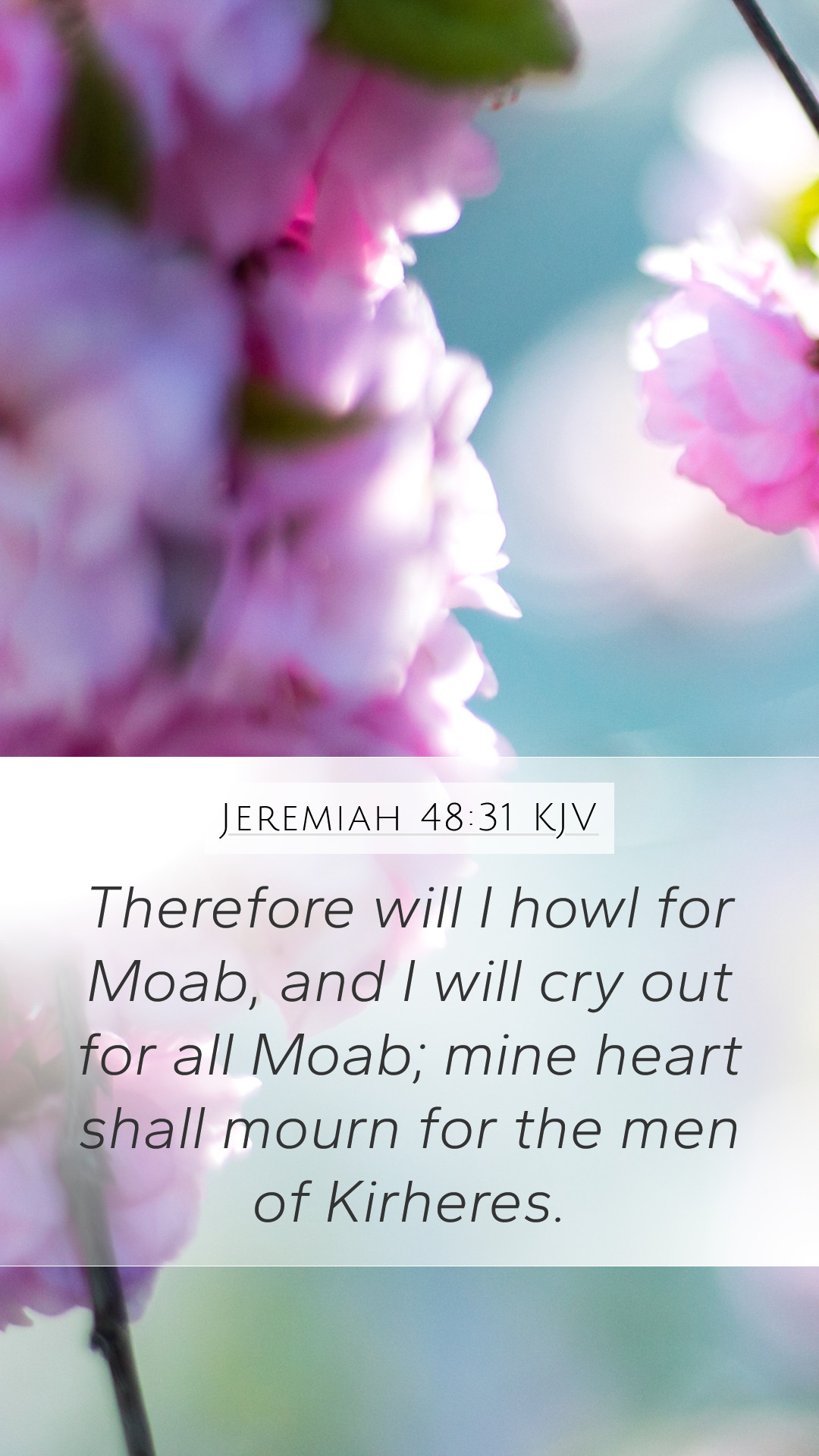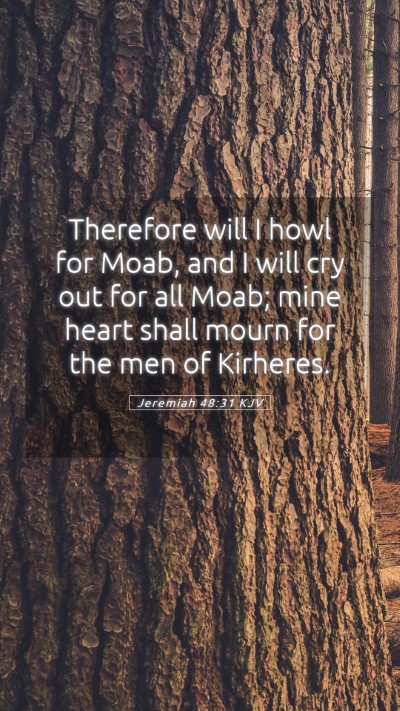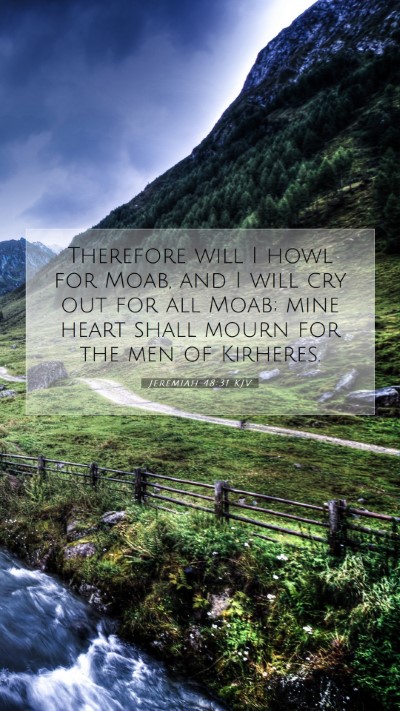Understanding Jeremiah 48:31
Jeremiah 48:31 states: "Therefore will I howl for Moab, and I will cry out for all Moab; mine heart shall mourn for the men of Kir-hareseth."
This verse is situated in a larger context where God conveys His judgment upon Moab, a nation that had turned away from Him. In this commentary, we will explore the meaning and implications of this scripture through insights derived from the Bible verse meanings provided by notable public domain commentaries.
Summary of Insights
- Matthew Henry: Henry emphasizes the emotional response of God towards the plight of Moab. He suggests that the act of howling signifies deep sorrow and mourning, reflecting God’s compassion even in the face of judgment.
- Albert Barnes: Barnes notes that God’s mourning for Moab indicates His desire for their repentance. He discusses how this verse illustrates the pain of divine judgment and the heart of God as He grieves over sin and its consequences.
- Adam Clarke: Clarke expands on the historical significance of Kir-hareseth, a city in Moab, highlighting the devastation that would come upon it. He explains that this verse represents the broader consequences of Moab’s unfaithfulness and the inevitable suffering that results from turning away from God.
Key Themes in Jeremiah 48:31
The themes that arise from this verse can be categorized as follows:
- Sorrow over Judgment: This verse reflects God’s sorrow not just over Moab’s fate, but over any nation or individual that falls away from His righteousness.
- Divine Compassion: God’s heart is portrayed as one that mourns, revealing that even in judgment, His nature is rooted in love and sorrow for His creation.
- Call to Repentance: The mourning serves as a testament to God’s desire for repentance among the nations, even those who are adversarial.
- The Historical Context: Understanding the historical context of Moab's idolatrous practices helps in grasping the depth of their sin and the seriousness of God’s judgment.
Bible Verse Commentary
This commentary seeks to provide bibliical exegesis for a deeper understanding of the scripture.
Emotional Language
The use of emotional language in Jeremiah 48:31 is significant. The term "howl" exemplifies an intense emotional reaction. It demonstrates that God does not express judgment as an impersonal force but rather operates from a place of deep concern and love.
The Fate of Moab
Moab’s impending devastation is not merely a historical event but serves as a warning to nations and individuals in all contexts today. Its relevance extends to understanding the consequences of sin in our own lives.
Cross-References
For a fuller understanding of Jeremiah 48:31, the following Bible verses provide valuable cross-references:
- Isaiah 15:2-3: Discusses the mourning of Moab and emphasizes their suffering.
- Ezekiel 25:8-11: Contains similar themes of judgment upon nations, including Moab.
- Zephaniah 2:8-11: Further elaborates on judgments and God’s wrath upon surrounding nations.
Conclusion
In conclusion, Jeremiah 48:31 encapsulates a profound message about divine sorrow, judgment, and the longing for redemption. Through the combined insights from the commentaries of Matthew Henry, Albert Barnes, and Adam Clarke, we can glean a rich Bible study insight into how we interpret such scriptural passages.
For those seeking deeper Bible verse interpretations and applying these messages to daily life, this verse illustrates the importance of remaining faithful to God, as the consequences of turning away are grave and deeply felt not just by the individuals, but even by God Himself.
Further Study
To gain a richer understanding, consider utilizing Bible study resources and engaging in discussions with bible study groups. Exploring how to interpret more difficult Bible passages like Jeremiah can uncover significant life applications.
As you journey through Scripture, remember that these scripture analyses serve not only for academic knowledge but for spiritual growth and a closer connection to God.


